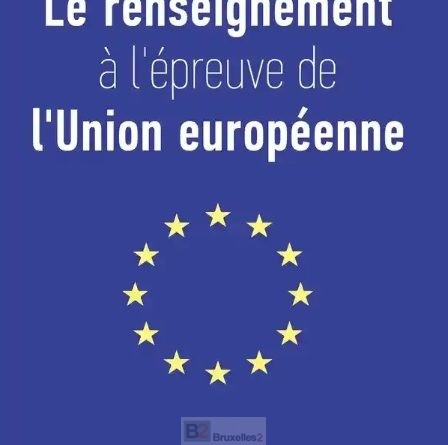Intelligence put to the test of the European Union
(B2) European intelligence cooperation remains one of the topics that raises many questions when looking at the work of 'spies'. Sometimes presented as a real progression, sometimes perceived as a utopia, this dialogue between allied services evolves according to the fluctuations of European defense and security policies.
The author of this book, Julie Prin-Lombardo, involves senior civil servants and senior managers in her reflections who come to support the statement with operational testimonies. In summary, this doctor of history working in the French Ministry of the Armed Forces describes an institutional construction which could have given rise to an effective structure, but which collapsed. This was when the EU Situation Center (SitCen) became the EU Situation and Intelligence Center (IntCen), upon the creation of the European External Action Service (EEAS) into which it was integrated. Paradox of this mutation: it is because the former had begun to become truly influential that some have worked to reduce its scope.
The British Obstacle
It is the positioning of London, in particular, which comes up repeatedly as an obstacle to better dialogue between European services. For the British, the priority of a solid relationship with Washington has blocked many mechanisms. For example: impossible to exchange intelligence with the United Kingdom, without the risk of seeing this data go to the United States. Similarly, London can hardly pass on a whole section of its knowledge... directly from the allied services across the Atlantic.
Informal dialogues
The fact remains that the exchanges still take place. More than in police forums, it is sometimes in more informal clubs that intelligence actors manage to coordinate. These platforms, the best known of which remains the Bern club, which has brought together service managers since the 1970s, have the merit of not constraining the participants and of letting everyone invest according to their needs, their abilities and its political limits. The blockages are in fact more political than operational: intelligence professionals are stepping up their efforts to find good ways to work effectively together.
Reading advice
This work sometimes remains quite technical, with a historical approach that will delight intelligence enthusiasts. Institutional decryptions have the strength of their weakness: very sharp, they will probably dissuade the more novice reader in terms of intelligence. For the specialist, it is a book to add to his library.
(Romain Mielcarek)
- Editions Nouveau Monde, Paris, November 2019, 311 pages, 19,90 euros



